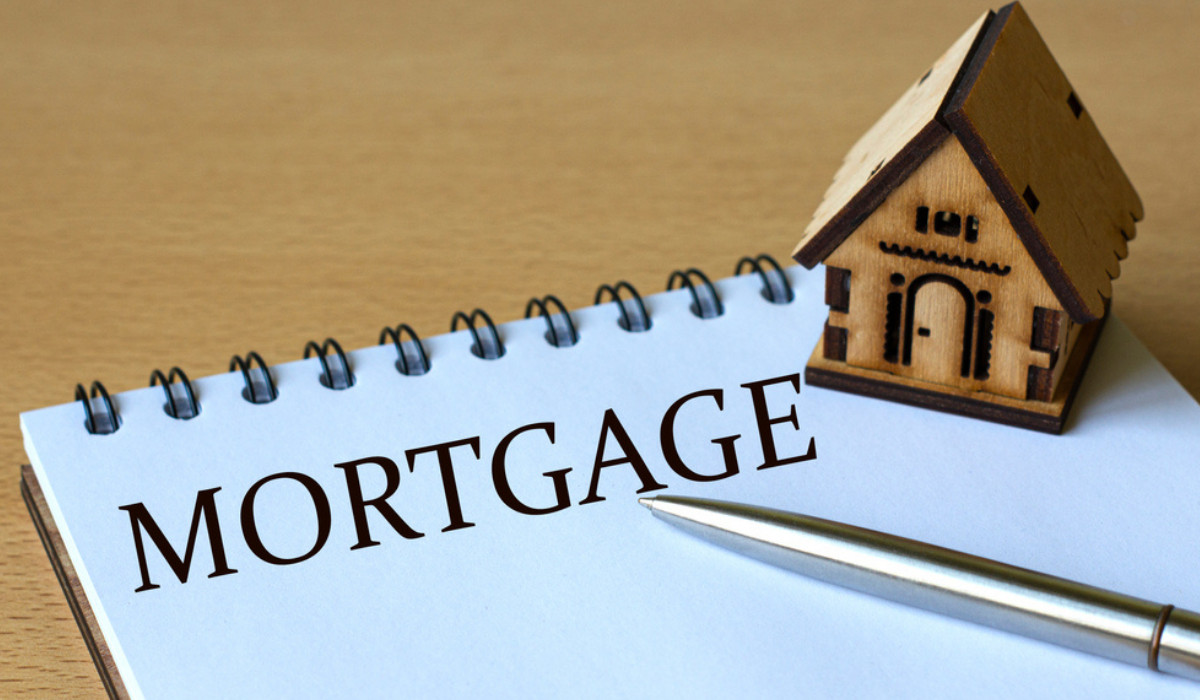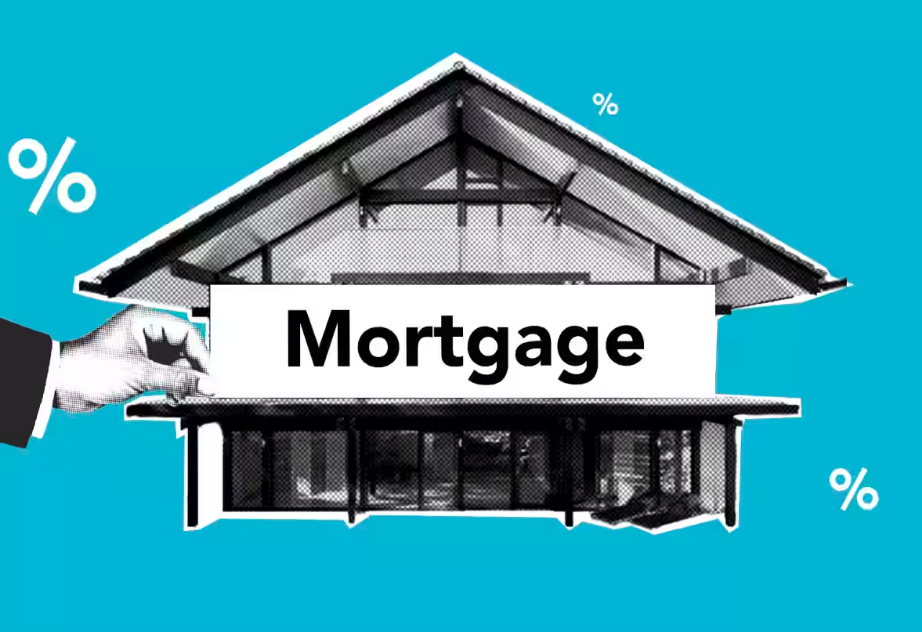A Mortgage is a Type of Loan that is used to purchase or maintain a home, plot, or any other type of real estate. A Mortgage is also referred to as the Mortgage Loan and it is the agreement between borrowers and mortgage lenders. The mortgage is the written agreement that gives the lender the right to take their home if they are unable to repay the money they lend you at the terms.
A mortgage is a Loan from the Bank or any other financial institution that helps the borrowers to buy their dream home. Usually, the mortgage loan is long-term debt taken out for 30, 20, or 15 years. Over time borrowers have to repay both the amount that they borrowed as well as the interest charged for the Loan. For most homebuyers, the mortgage process is an essential part of the homeownership experience, with this, it can be a lot to wrap if the borrowers are going through it for the first time.
What Is A Mortgage?
A Mortgage is typically a long-term loan, that can be used to purchase a new build home or buy the existing property from the current owner. A mortgage lets borrowers purchase a home without paying cash. Typically the mortgage requires the borrowers to pay some money right away which is called the down payment and then repay the rest over time.
“Mortgage” can also refer to the legal documents that define the loan terms and permit your lender to grab the home if the borrowers are unable to pay the loan they agreed. Borrowers can get the mortgage from the mortgage lender including banks, credit unions, nonbank lenders, etc. The Term “Mortgage” comes from old English and French which means “death vow”.
What Is the Working Process of Mortgage Loan?
If you are looking to get a Mortgage Loan, then you have to contact a Bank, Mortgage company, or some other sort of home loan lender. Normally, the procedure for getting a mortgage loan starts with going through the pre-approval process to know the idea of how much the lender is willing to provide you and the interest rate you will pay. it will determine the estimated cost of a loan and an idea about how much loan you can afford.
The Mortgage Loan application process involves many steps to be completed. to start applying for a mortgage loan, the borrowers need their income proof (paystubs and income tax returns) along with brokerage statements, a list of debts, personal data for credit inquiries, and much more. after attaching all the necessary documents, You will apply for the mortgage Loan through the lender’s website or directly through the loan office.

What Are the Types of Mortgage Loans?
There are various types of Mortgage Loans, available for borrowers. Here below are some of the common types of Mortgage Loans:
- Conventional Loans: These Loans are not backed by the govt or govt agency. However, Conventional Loans are made and guaranteed through private sector lenders such as banks, credit unions, or the mortgage company.
- Fixed-rate Mortgage: The Fixed-rate Mortgage Loans may be open or closed for the specific terms of 15, 20, or 30 years or these loans may run for the length of time agreed upon by the Lender and borrowers.
- Adjustable-rate mortgages: These Loans are also called variable-rate mortgages or floating mortgages. An Adjustable-rate mortgage is a home loan having interest rates that can fluctuate periodically based on the performance.
- Government-insured loans: Government-insured loans include the USDA Loans, FHA Loans, and VA Loans and have more relaxed borrower qualifications than other privately-backed mortgages.
- Jumbo Loans: These Loans are best for high-priced properties of above half a million dollars. The APR or average annual percentage rate of these Mortgages is often par with conventional mortgages, however, the down payments of Jumbo Loans are roughly 10% to 15% of the total purchase price.
- Reverse Mortgage: Reverse Mortgage Loans are specially designed for homeowners age 62 or older who want to convert part of the equity in their homes into cash.
What is included in the Mortgage Payment?
The typical Mortgage Payment included the following things:
- Principal: The Principal is the amount that the borrowers take and have to repay to the lender.
- Interest: This is the cost that you need to pay to the lender for borrowing the amount for purchasing any property.
- Mortgage Insurance: Mortgage Insurance is designed to protect the lender in case you default on the loan. Whether the borrower pays or not depends upon the loan type and the size of the down payment.
- Property Tax and Homeowner Insurance: Lenders often roll property tax payments and homeowners insurance into your mortgage Payment.
How To Get A Mortgage Loan?
The Mortgage Loan process is simple and straightforward if the borrower has a regular job, adequate income, and a good credit score. Here below are several steps that you need to take to become a homeowner:
Be ready to show the proof of funds
Getting Pre-approved upfront can show you exactly how much you will qualify for, so you need not waste your time buying the home outside your budget. Mortgage Preapproval means that the lender has verified the borrower’s financial details and issued a preapproval letter to show the sellers and agents that they have essentially been approved, pending only the house value determination and condition.
Shop for your Dream Home and Make the offer
After that borrowers need to connect with real estate agents to start looking for homes in your area. The real estate agent will be able to schedule viewings and find open houses for their clients during the house-hunting process.
Final Approval
After accepting the offer, there is a bit more work that has to be done to finalize the sale and financing. However, the lenders will verify the complete details of the mortgage including income reports, employment, and assets, in case those details were not verified upfront. they will also verify the details of the property. All these involve getting an appraisal to confirm the value of the home and getting the inspection to evaluate the condition of a home.
Closing of the Loan
After the Loan is fully approved, buyers will meet with lenders and real estate professionals to close the loan and take ownership of the home. During the closing process, buyers need to Pay a Down Payment and closing costs along with signing the mortgage papers.
Common Parties That Are Involves In the Mortgage
There are three Parties involved in every Mortgage Transaction. These Parties are:
- Lender: It is the financial institution that provides loans to purchase a House. A Mortgage Lender may be a Bank, credit union, or online mortgage company. When the borrower applies for the Mortgage, the Lender will review their information to make sure they meet the eligibility standards or not. Every Lender has its own standards, and lenders need to always be careful to only choose qualified clients who are likely to repay their loans. that’s why Lenders always look at borrowers’ financial profiles like credit score, income, assets, and debt to determine whether they can make loan payments or not.
- Borrowers: They are individuals who are looking for a loan to purchase their dream home. They may be able to apply as only borrowers on a loan or a co-borrower. adding more borrowers may allow them to qualify for the more expensive house.
- Co-Signer: Due to no credit history or negative credit history, sometimes a lender may ask prospective borrowers to find a co-signer for a mortgage loan. Co-signer, not only define the character of borrowers, but, they enter into a legally binding contract that will hold them responsible for paying for the mortgage with or without any rights of ownership, should the borrower default on the loan.
Final Verdict
Choosing the right mortgage depends on the credit, finances, and goals as well as whether you meet your other eligibility requirements. A mortgage may be the largest loan you ever take out, but it could be a necessity if you would like to purchase a house or a rental property. The Mortgage cost depends upon the loan type, the terms (such as 30 years), and the rate of interest that the lenders charge. The mortgage rate widely depends upon the type of products and qualifications of the applicant.
